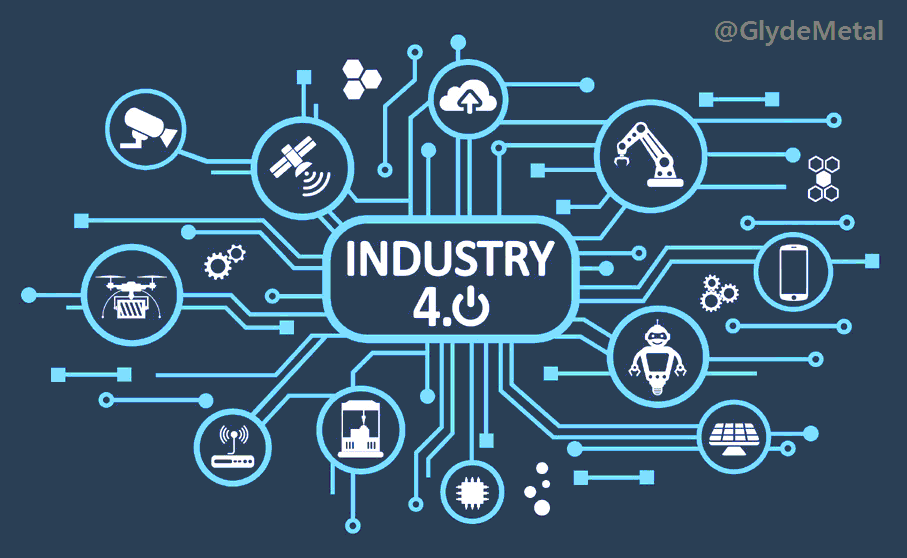
Industry 4.0, the fourth industrial revolution, rapidly transforms our lives and work. With the rapid advancement of technologies such as automation, artificial intelligence, and the Internet of Things, the workforce and economy are also undergoing significant changes.
Individuals and organizations must have a skilled workforce equipped with the necessary knowledge and skills to meet the demands of Industry 4.0.
Vocational education is vital in preparing a skilled workforce for Industry 4.0. In this blog post, we will explore the intersection of vocational education and Industry 4.0 and the benefits that it can bring to individuals and organizations.
An overview of Industry 4.0 and its impact on the workforce and the economy
Industry 4.0 integrates advanced technologies into manufacturing and production, such as automation, artificial intelligence, and the Internet of Things. This integration can potentially significantly improve efficiency, productivity, and product quality.
However, it also significantly changes the workforce and the economy. As automation and artificial intelligence take over many traditional jobs, there is a growing need for workers with advanced technical skills and knowledge. This is where vocational education comes in.
The role of vocational education in preparing a skilled workforce for Industry 4.0
Vocational education, or vocational training, prepares individuals for a particular trade or profession.
Vocational education is focused on practical, hands-on training and provides students with the specific skills and knowledge needed for a particular job or field. In the context of Industry 4.0, vocational education plays a critical role in preparing a skilled workforce for the future.
Examples of successful vocational education programs
Many successful vocational education programs are preparing students for Industry 4.0 careers. For example, Germany's dual education system, combining classroom instruction with on-the-job training, has successfully prepared skilled workers for the manufacturing industry.
In the United States, vocational education programs in advanced manufacturing, information technology, and healthcare have prepared students for Industry 4.0 careers.
The advantages of vocational education for individuals and organizations
Vocational education provides individuals with the specific skills and knowledge needed for a particular job or field and offers many other advantages. For individuals, vocational education can increase job opportunities and earning potential.
A skilled workforce with the necessary knowledge and skills can improve productivity and efficiency for organizations.
The benefits of vocational education for Industry 4.0
Vocational education benefits individuals and organizations and has the potential to drive innovation and economic growth. A skilled workforce with the necessary knowledge and skills can help promote innovation and improve organizations' competitiveness.
Furthermore, a skilled workforce can also help to drive economic growth by providing organizations with the necessary resources to expand and grow.
The future of vocational education in the context of Industry 4.0
As Industry 4.0 continues to evolve, the skills and knowledge needed for the workforce will also change. Vocational education must adapt to these changes to prepare a skilled workforce for the future. This may involve incorporating new technologies into vocational education programs, such as virtual and augmented reality.
Additionally, vocational education programs will need to be flexible and responsive to the changing needs of the workforce.
The challenges facing vocational education and potential solutions
Despite the many benefits that vocational education can bring, some challenges need to be addressed. One major challenge is the need for more funding for vocational education programs, making it difficult for individuals to access the education and training they need.
Another challenge is the perception of vocational education as a "lesser" form than traditional four-year college degrees, which can discourage individuals from pursuing vocational education.
Potential solutions to these challenges include increasing funding for vocational education programs and changing the perception of vocational education. Additionally, government, industry, and educational institutions can collaborate to promote and support vocational education in Industry 4.0.
The role of government, industry, and educational institutions
The success of vocational education in Industry 4.0 depends on the cooperation and collaboration of government, industry, and educational institutions. Government can play a role by providing funding and support for vocational education programs.
Industry can contribute by partnering with educational institutions to provide on-the-job training and internships for students. Academic institutions can also contribute by incorporating Industry 4.0 technologies and job market trends into their vocational education programs.
Conclusion
Vocational education is critical in preparing a skilled workforce for Industry 4.0. It provides individuals with the specific skills and knowledge needed for a particular job or field and offers many advantages for individuals and organizations. The benefits of vocational education for Industry 4.0 include promoting innovation and driving economic growth.
However, some challenges need to be addressed, such as the lack of funding and the perception of vocational education. Government, industry, and educational institutions can work together to promote and support vocational education in Industry 4.0. Vocational education is an excellent option for those pursuing a career in this field.
Also Read:
- Apprenticeships: How to Get Started
- Careers in Trades: Opportunities and Salaries
- Choosing a Vocational Career: What to Consider
- Importance of Vocational Education in Today's Job Market
- Online Vocational Programs: Advantages and Disadvantages
- Preparing for a Vocational Career: Tips and Strategies
- Role of Government in Supporting Vocational Education
- The Advantages of Vocational Education for High School Students
- The Future of Vocational Education: Emerging Trends and Technologies
- The Role of Vocational Education in Economic Development
- The Vocational Education and Training System
- Types of Vocational Programs: Which One is Right for You?
- Vocational Education and Entrepreneurship
- Vocational Education and Industry 4.0
- Vocational Education and Job Placement
- Vocational Education and Lifelong Learning
- Vocational Education and Skills Shortage: How to bridge the gap
- Vocational Education and the Future of Work
- Vocational Education and the Gig Economy
- Vocational Training vs. College: What's the Difference?


